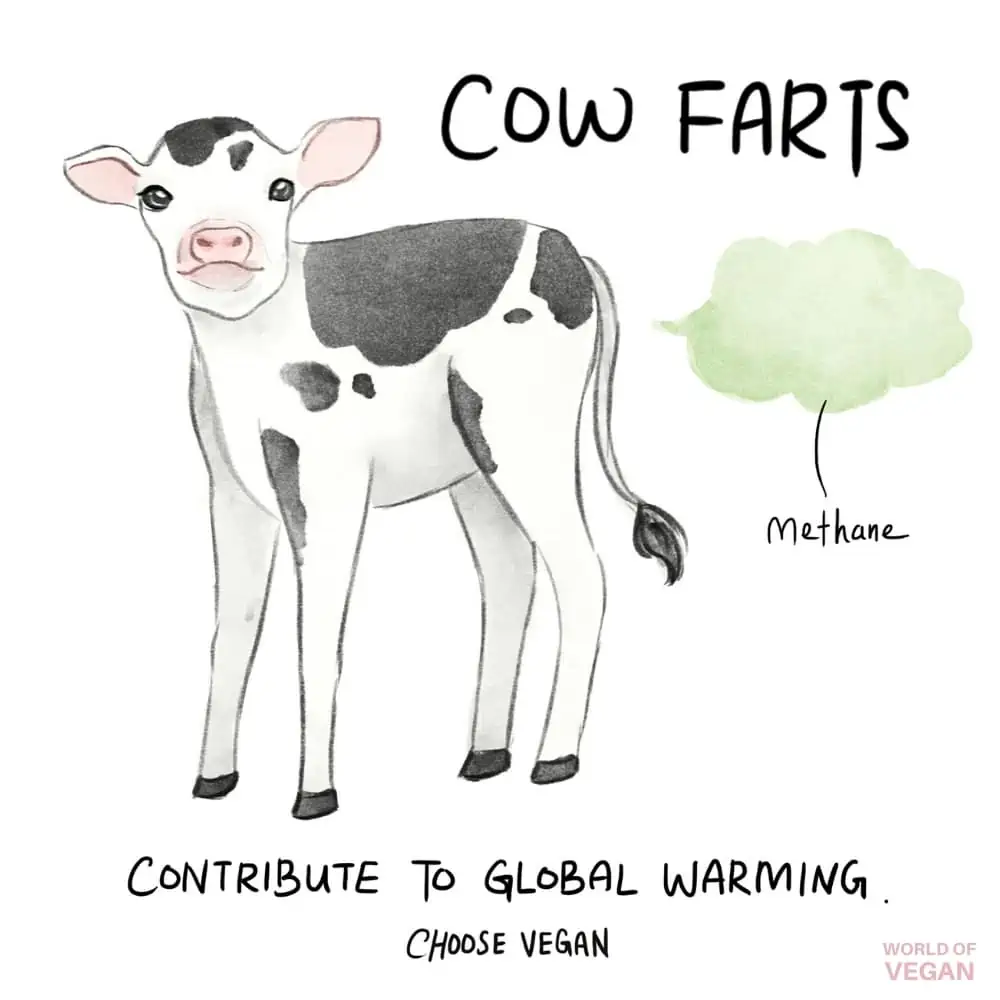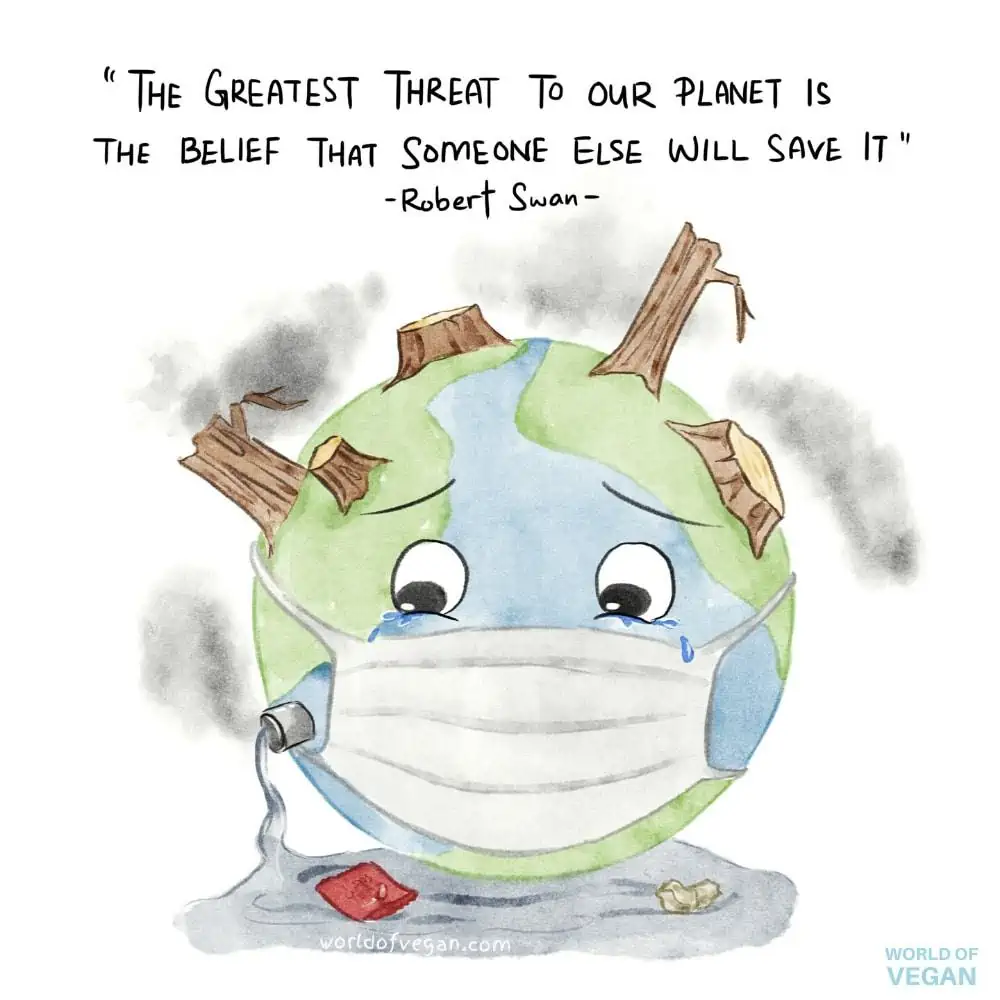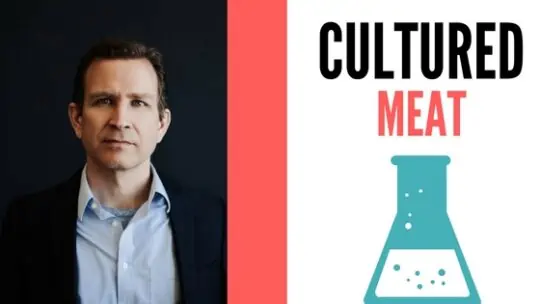8 Environmental Reasons to Go Vegan
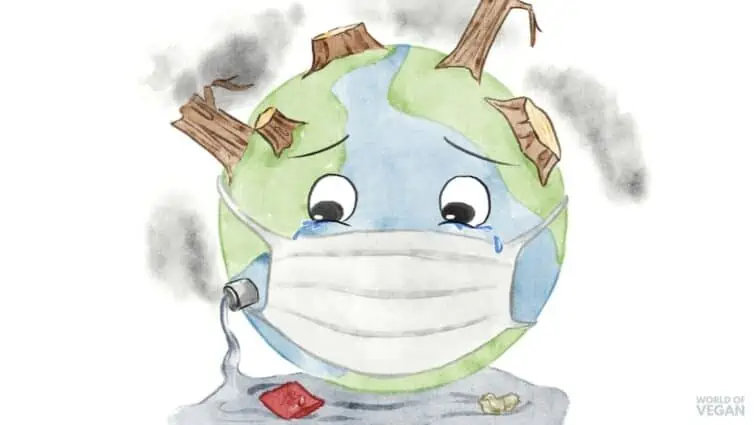
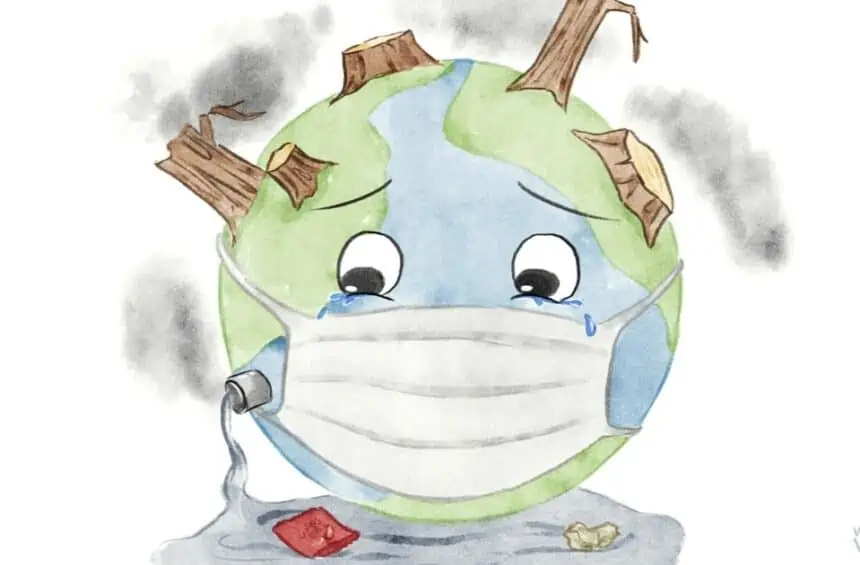
When people talk about why they decided to adopt a vegan lifestyle, animal rights and personal health are often the major reasons behind the change.
But what many people forget is that choosing vegan can have a positive environmental impact as well!
So for those of you who are considering going vegan or who want a little extra information to share with friends when they ask you for the thousandth time why you went vegan, here are some positive environmental impacts that going vegan can have on the environment.
1. Global farmland could be reduced by up to 75% if everyone chose to go vegan.
This would clear up land roughly the size of the United States, the European Union, China, and Australia, combined. Even if farmers opted for more low-impact livestock activities, a study published in Science suggested that the effects of low-impact animal products were generally greater than those of vegetable products.
2. The total amount of land required for agricultural use would decline by 13% if humans consumed only enough food to meet their nutritional requirements.
It’s no secret that especially in more economically prosperous countries, people tend to consume more protein and nutrients than they need. By being more selective in how much food we eat and more careful in eating to meet our dietary restrictions, the amount of land required for agriculture could be significantly reduced.
3. Up to 350 million more people could be fed if all animal-based products in the American diet were replaced with plant-based alternatives.
This approach would be more beneficial overall than fixing all of the losses in the food supply chain, including spoilage and leaky supply chains. The benefit of replacing animal-based with plant-based alternatives is due in no small part to plants generally requiring fewer resources per gram of protein or per calorie than resources used for raising livestock. As a result, more land could be freed up to grow crops for human consumption.
4. Plant-based alternatives could provide up to two- to twenty-times more nutritionally-similar food per unit of cropland than beef, pork, dairy, poultry, and eggs.
Specifically, the study published in PNAS suggested that plant-based replacements could produce around two-times more nutritionally-similar food than eggs, which are considered to be the least resource-intensive animal-based food category, and up to 20-times more nutritionally-similar food than beef, which is considered to be the most intensive animal-based food category.
5. A vegan diet may require up to five-times less land than a diet containing animal-products.
Although there are many reasons why animal agriculture generally requires more land than crop-based agriculture, the amount of land needed to grow feed for animals and then land for them to graze or be housed are two significant factors.
6. Reducing the amount of animal-based protein in our diets by just 50% could decrease green water consumption across the world by 6%, according to research published in Environmental Research Letters.
According to the research in this study, the amount of blue and green water that was consumed would vary significantly from region to region, but most regions of the world did see a notable decrease in water consumption.
7. The global food supply could be increased by up to 49% without the need for adding more croplands if humans followed a plant-based diet.
These findings were under the assumption that people did not consume any animal-based products and that diets were not qualitatively optimized.
8. “A vegan diet is probably the single biggest way to reduce your impact on planet Earth“
According to Joseph Poore, a researcher at the University of Oxford, “A vegan diet is probably the single biggest way to reduce your impact on planet Earth, not just greenhouse gases, but global acidification, eutrophication, land use and water use . . . It is far bigger than cutting down on your flights or buying an electric car.”
According to numerous research studies, it’s become more and more apparent that practices associated with commercial livestock are damaging to the planet.
For example, research reported by FAO noted that the livestock sector was one of the three major contributing factors associated with major environmental concerns at major scales, from local to global. Indeed, when livestock are tightly concentrated in one area, it can overwhelm the local environment’s ability to handle all of their waste, thus contaminating surface and ground water.
Livestock may also be responsible for up to 18% of global greenhouse gas emissions, which is around 6 billion tonnes.
Worse yet, the clearing of millions of trees for farmland and pastureland each year may also be damaging the environment via ocean acidifcation, among other ill effects.
While there are thousands of valid reasons to go vegan, the impact that a vegan diet and unsustainability of our current food system should be in the forefront of anyone’s mind when considering going vegan. Although adopting a vegan lifestyle may seem difficult to some, the benefits that it can have for our planet far exceed any discomfort we may feel when giving up meat and dairy.

